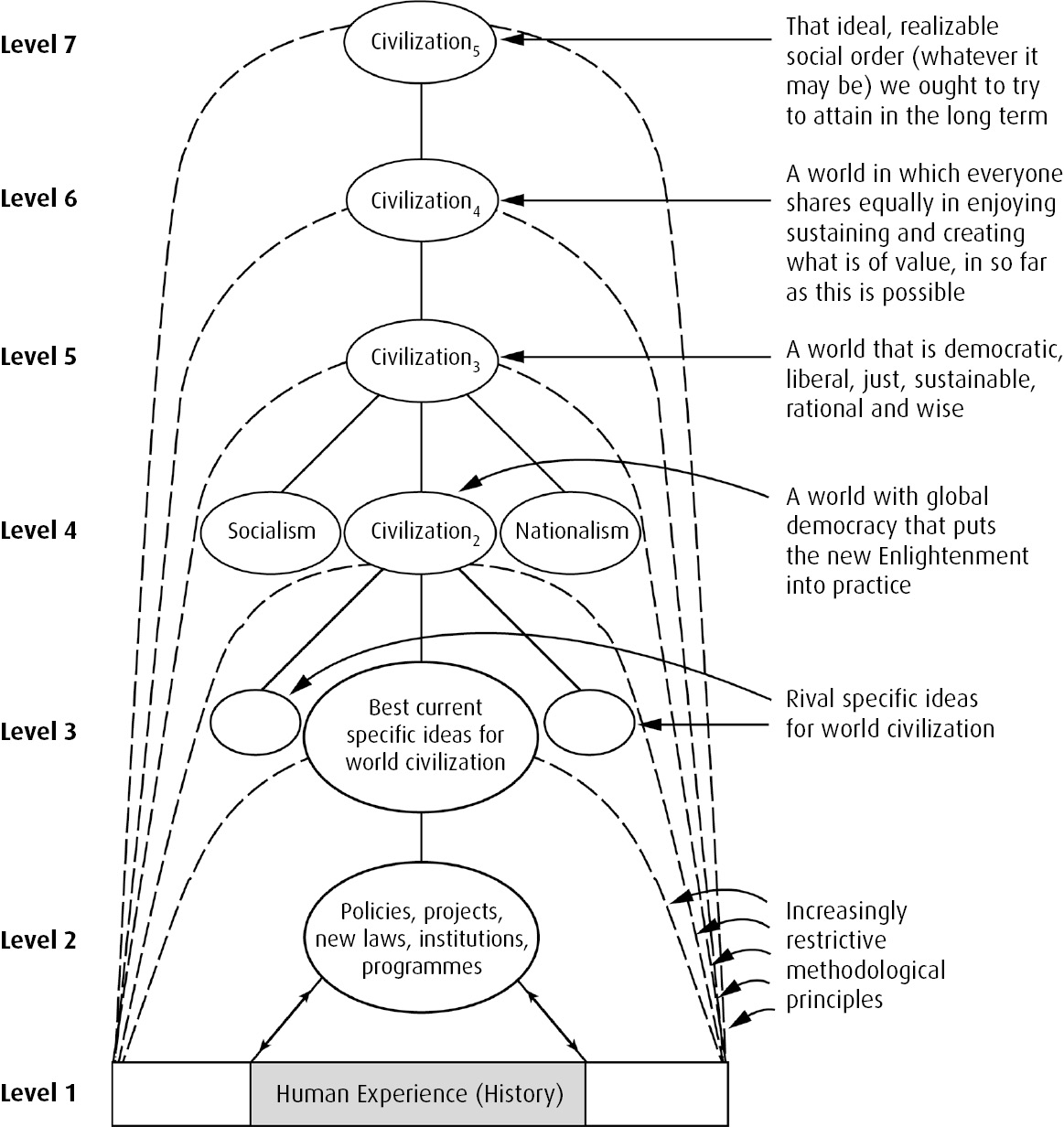10.7 The New Enlightenment, step (iii): from knowledge to wisdom
I come now to step (iii) of the New Enlightenment Programme. The task, here, is to help humanity gradually get more AOR into diverse aspects of social and institutional life – personal, political, economic, educational, international – so that humanity may gradually learn how to make progress towards an enlightened world. Social inquiry, in taking up this task, needs to be pursued as social methodology or social philosophy. What the philosophy of science is to science, as conceived by AOE, so sociology is to the social world: it has the task of helping diverse valuable human endeavours and institutions gradually improve aims and methods so that the world may make social progress towards global enlightenment. (The sociology of science, as a special case, is one and the same thing as the philosophy of science.) And a basic task of academic inquiry, more generally, becomes to help humanity solve its problems of living in increasingly rational, cooperative, enlightened ways, thus helping humanity become more civilized. The basic aim of academic inquiry becomes, as I have already said, to promote the growth of wisdom. Those parts of academic inquiry devoted to improving knowledge, understanding and technological know-how contribute to the growth of wisdom. The New Enlightenment Programme thus has dramatic and far-reaching implications for academic inquiry, for almost every branch and aspect of science and the humanities, for its overall character and structure, its overall aims and methods, and its relationship to the rest of the social world. I have spelled out in some detail what these implications are in a number of publications.32
As I have already remarked, the aim of achieving global civilization is inherently problematic.33 This means, according to AOR, that we need to represent the aim at a number of levels, from the specific and highly problematic to the unspecific and unproblematic. Thus, at a fairly specific level, we might, for example, specify civilization to be a state of affairs in which there is an end to war, dictatorships, population growth, extreme inequalities of wealth, and the establishment of democratic, liberal world government and a sustainable world industry and agriculture. At a rather more general level, we might specify civilization to be a state of affairs in which everyone shares equally in enjoying, sustaining and creating what is of value in life in so far as this is possible.

